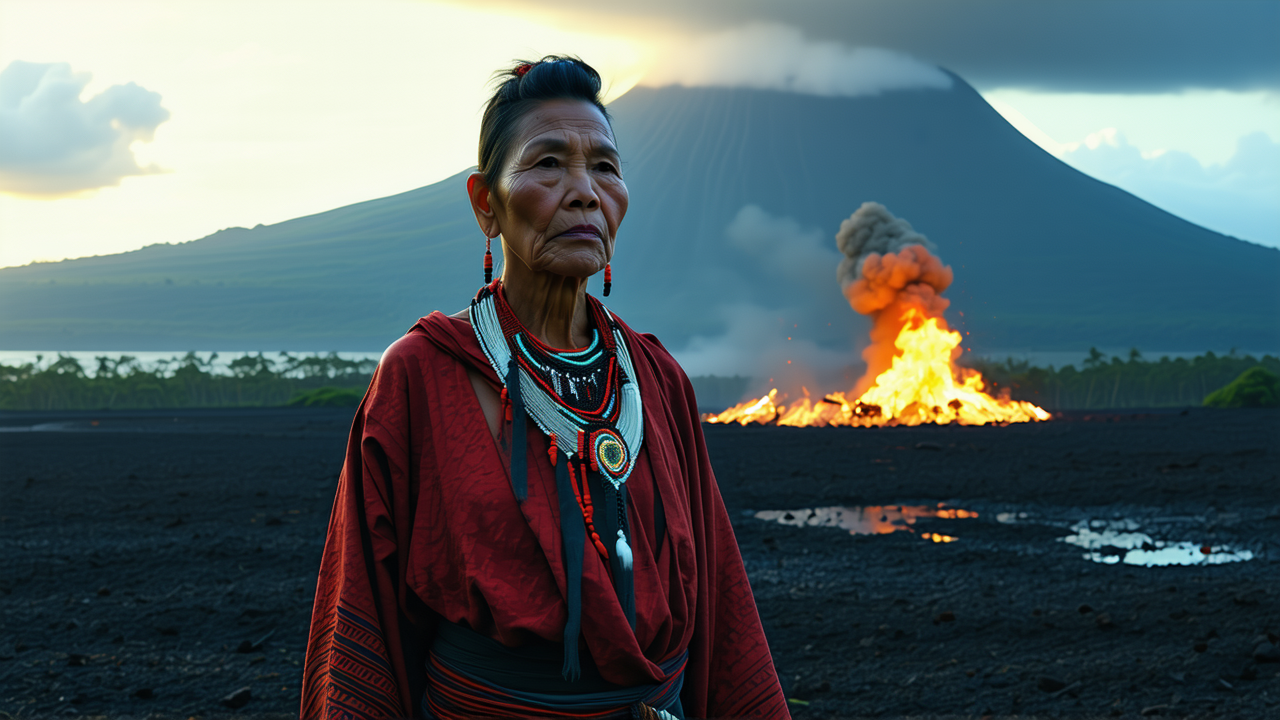Cancer Strikes Three Generations of a Family After French Nuclear Tests – Rainbow Warrior: A Forgotten History
Cancer Strikes Three Generations of a Family After French Nuclear Tests – Rainbow Warrior: A Forgotten History
Forty years ago, a single act of violence in Auckland Harbour shook the world and sparked a global movement against nuclear testing. The bombing of the Rainbow Warrior, a Greenpeace ship, by French agents set off a chain of events that would reverberate across generations – and across the Pacific. Now, a six-part podcast series titled Rainbow Warrior: A Forgotten History delves deep into the legacy of that attack and the long-term consequences of French nuclear testing in French Polynesia.
At the heart of this story is Hinamoeura Morgant-Cross, now known as Hina, a fierce anti-nuclear activist and member of Tahiti’s National Assembly. Her journey from a young mother diagnosed with chronic myeloid leukemia to a global advocate for nuclear disarmament is as harrowing as it is inspiring.
"I really felt that I had poison in my blood, in my genes," Hina told the podcast. "I was a young mum when I first got diagnosed, and the first diagnosis was very bad – they thought that I had the worst leukaemia."
Her family history reveals a chilling pattern. Her grandmother was diagnosed with thyroid cancer in the 1990s, her aunt with thyroid and breast cancer, and her mother and sister with thyroid disease. Hina herself was born in 1989, more than a decade after the last of the French nuclear tests in the region, but the effects have followed her family for generations.
"The most painful feeling was to think that I didn’t have the time to teach all I wanted to teach to my son," Hina said. "I really thought – how will he do things without his mum? It was the worst, thinking I will not be able to raise my child."
Despite the trauma, Hina has not only survived but has turned her pain into purpose. She is now a vocal advocate for nuclear disarmament and has spoken at international forums, including the United Nations. Her experience has become a symbol of the long-term health and environmental consequences of nuclear testing.
"General de Gaulle came to Tahiti in 1966 and talked to my people about a big development," she said. "What development? Miscarriage, handicaps, cancer, leukaemia? I finished my speech by saying that for 30 years, we have been the lab rat, the guinea pig of the French state."
The legacy of the French nuclear tests in French Polynesia has left many families grappling with health issues, a reality that is often shrouded in shame and silence. Hina says that the connection between nuclear fallout and cancer is difficult to discuss, and many people in her community choose not to have children out of fear of passing on the genetic burden.
"We feel guilty," she said. "I think of many other people I know who’ve decided not to have kids and it’s terrible."
In June, the French parliament recommended that the government apologize and amend a heavily criticized compensation law for victims of nuclear testing. However, these recommendations have yet to be passed into law.
The Rainbow Warrior: A Forgotten History podcast series, produced by Bird of Paradise Productions in collaboration with the New Zealand Herald, is a powerful and emotional exploration of the events that led to the bombing of the Rainbow Warrior and the lasting impact of nuclear testing on communities around the world.
Listeners can follow the series on iHeartRadio, Apple Podcasts, Spotify, or wherever they get their podcasts. New episodes are released every Thursday.
This is more than a true crime series. It is a testament to resilience, a call for justice, and a reminder of the human cost of nuclear testing that continues to be felt today.
